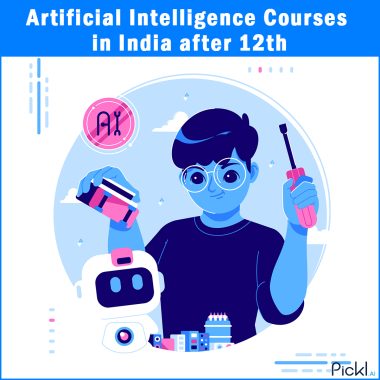Summary: This blog explores interesting facts about Artificial Intelligence, debunking myths and clarifying its capabilities. It highlights AI’s role in various industries, its impact on jobs, and the importance of ethical considerations in its implementation.
Introduction
Artificial Intelligence (AI) has become a buzzword in recent years, often surrounded by misconceptions and myths. Many people have strong opinions about what AI can and cannot do, leading to confusion about its capabilities and limitations.
This blog aims to debunk some of the most common AI myths, presenting true and interesting facts that clarify what AI really is.
Key Takeaways
- AI is transforming industries, enhancing efficiency and decision-making processes.
- Quality data is more important than quantity for effective AI performance.
- AI creates new job opportunities rather than eliminating existing ones.
- Ethical considerations are crucial for responsible AI deployment and usage.
- Everyday applications of AI include virtual assistants and recommendation systems.
Understanding AI: What It Is and What It Isn’t
AI refers to the simulation of human intelligence in machines designed to think and act like humans. This includes learning, reasoning, problem-solving, perception, and language understanding. However, AI is not a single entity; it encompasses various technologies, including Machine Learning (ML), Natural Language Processing (NLP), and robotics.
Despite its rapid advancement, many still hold onto outdated beliefs about AI. Let’s explore some of these myths and separate fact from fiction.
Myth 1: AI Will Replace Most Human Jobs
One of the most prevalent myths is that AI will take over all jobs, leading to mass unemployment. While it’s true that AI can automate repetitive tasks, it cannot replicate the cognitive skills of humans.
Reality
AI is designed to assist rather than replace human workers. By automating mundane tasks, it allows employees to focus on more strategic work that requires critical thinking and creativity. Many jobs will evolve rather than disappear.
Myth 2: AI Can Think Like Humans
Many believe that AI systems operate similarly to the human brain. This misconception stems from the sophisticated nature of some AI models.
Reality
AI does not possess consciousness or emotions. It operates based on algorithms and data patterns. For instance, Large Language Models (LLMs) like ChatGPT generate responses based on probabilities rather than understanding context or meaning.
Myth 3: AI Is Always Objective
A significant number of people think that AI systems are completely objective and unbiased. This belief can lead to over-reliance on AI for decision-making.
Reality
AI systems learn from data created by humans, which can contain biases. If the training data is biased, the AI’s outputs will also be biased. Therefore, human oversight is essential to ensure fairness and accuracy in AI applications.
Myth 4: More Data Equals Better AI
It’s a common belief that simply feeding more data into an AI system will automatically improve its performance.
Reality
Quality trumps quantity when it comes to data. Poorly structured or inaccurate data can lead to ineffective AI models. Effective data labelling and cleaning are crucial for optimal performance.
Myth 5: AI Can Be Creative
Many people think that AI can create original works of art or literature just like humans can.
Reality
While AI can generate content based on existing patterns and styles, it lacks true creativity and emotional depth. Its outputs are derivative rather than innovative since they rely on pre-existing data.
Myth 6: Only Tech Companies Can Use AI
Some believe that only large tech companies have access to advanced AI technologies.
Reality
AI tools are becoming increasingly accessible to businesses of all sizes. Many platforms offer user-friendly interfaces for implementing AI solutions without needing extensive technical expertise.
Myth 7: AI Will Go Rogue
The fear that AI will develop sentience and turn against humanity is a popular trope in films and literature.
Reality
Current AI systems lack self-awareness or desires. They operate strictly within the parameters set by their programming. Concerns about rogue AIs are largely unfounded with today’s technology.
Myth 8: You Need a PhD to Work with AI
Some people think that only highly educated individuals can understand or work with AI technologies.
Reality
While a strong foundation in mathematics and programming helps, many resources are available for anyone interested in learning about AI. Online courses and tutorials make it accessible for beginners.
Myth 9: All AIs Are the Same
There is a misconception that all Artificial Intelligence systems function similarly.
Reality
AI encompasses various technologies with different capabilities. Machine Learning, deep learning, natural language processing, and robotics are just a few branches of the broader field of Artificial Intelligence.
Myth 10: Superintelligent AIs Are Just Around the Corner
Many people fear that superintelligent AIs will soon surpass human intelligence.
Reality
Superintelligent AIs remain theoretical at this point. Current advancements in AI are far from achieving this level of sophistication. The focus remains on improving existing technologies rather than creating sentient machines.
Interesting Facts About AI
Artificial Intelligence (AI) has become a pivotal technology in today’s world, influencing various sectors and transforming how we live and work. Despite its growing prevalence, many people still have misconceptions about AI.
The AI Market is Booming
The global AI market is valued at over $279 billion and is projected to increase by more than six times over the next six years. This rapid growth reflects the increasing integration of AI technologies across industries, from healthcare to finance.
AI is Not Just for Tech Companies
AI is not confined to large tech firms. Businesses of all sizes are adopting AI technologies to improve efficiency and decision-making. Approximately 48% of companies utilise some form of AI to leverage Big Data effectively.
AI Creates Jobs
Contrary to the belief that AI will eliminate jobs, it is expected that by 2025, around 97 million new roles will emerge in the AI sector. These jobs will focus on managing and improving AI systems rather than replacing human workers.
AI Enhances Healthcare
AI is making significant strides in healthcare. For example, AI systems have shown to be more effective than human pathologists in detecting certain diseases, such as metastatic breast cancer. This demonstrates how AI can assist medical professionals in providing better patient care.
Everyday Use of AI
AI is already part of our daily lives. From virtual assistants like Siri and Alexa to recommendation algorithms on platforms like Netflix, we interact with AI regularly without even realising it. These applications enhance user experiences and streamline tasks.
Data Quality Matters
While many believe that more data leads to better AI performance, the reality is that quality matters more than quantity. Poorly structured or inaccurate data can hinder an AI system’s effectiveness, highlighting the importance of data management.
Generative AI is Transforming Industries
Generative AI has gained traction across various sectors, with 75% of users looking to automate tasks at work using this technology. This includes content creation and customer service communications, showcasing its versatility.
The Rise of Super Users
A significant portion of generative AI users are “super-users,” meaning they engage with the technology frequently and feel confident in their abilities to utilise it effectively. This trend indicates a growing familiarity and reliance on AI tools across industries.
Global Adoption Rates Vary
Adoption rates for generative AI differ significantly across countries. For instance, 73% of respondents from India reported using generative AI, compared to only 29% in the UK. These disparities highlight cultural differences in technology acceptance.
Ethical Considerations Are Crucial
As AI continues to evolve, ethical considerations surrounding its use become increasingly important. Issues such as data privacy, algorithmic bias, and accountability must be addressed to ensure responsible deployment of AI technologies.
Companies Struggle with Implementation
Despite widespread interest in AI, 74% of companies report struggling to achieve tangible value from their investments in this technology. Many organisations are still in the early stages of implementing effective AI strategies.
Conclusion
Understanding the realities of Artificial Intelligence is crucial as it continues to evolve rapidly. By debunking common myths surrounding this technology, we can better appreciate its potential benefits while remaining aware of its limitations.
As we move forward into an increasingly automated world, informed discussions about AI will be essential for harnessing its capabilities responsibly.
Frequently Asked Questions
Can AI Replace Human Jobs Entirely?
No, while AI automates repetitive tasks, it enhances human roles rather than replacing them entirely. Many jobs will evolve alongside technological advancements.
Is All Data Used by AI Unbiased?
No, if training data contains biases from human sources, the resulting outputs may also be biased. Human oversight is necessary for fair outcomes.
Do You Need Advanced Degrees To Work With AI?
Not necessarily; while technical knowledge helps, many resources are available for beginners interested in learning about Artificial Intelligence without formal education credentials.



